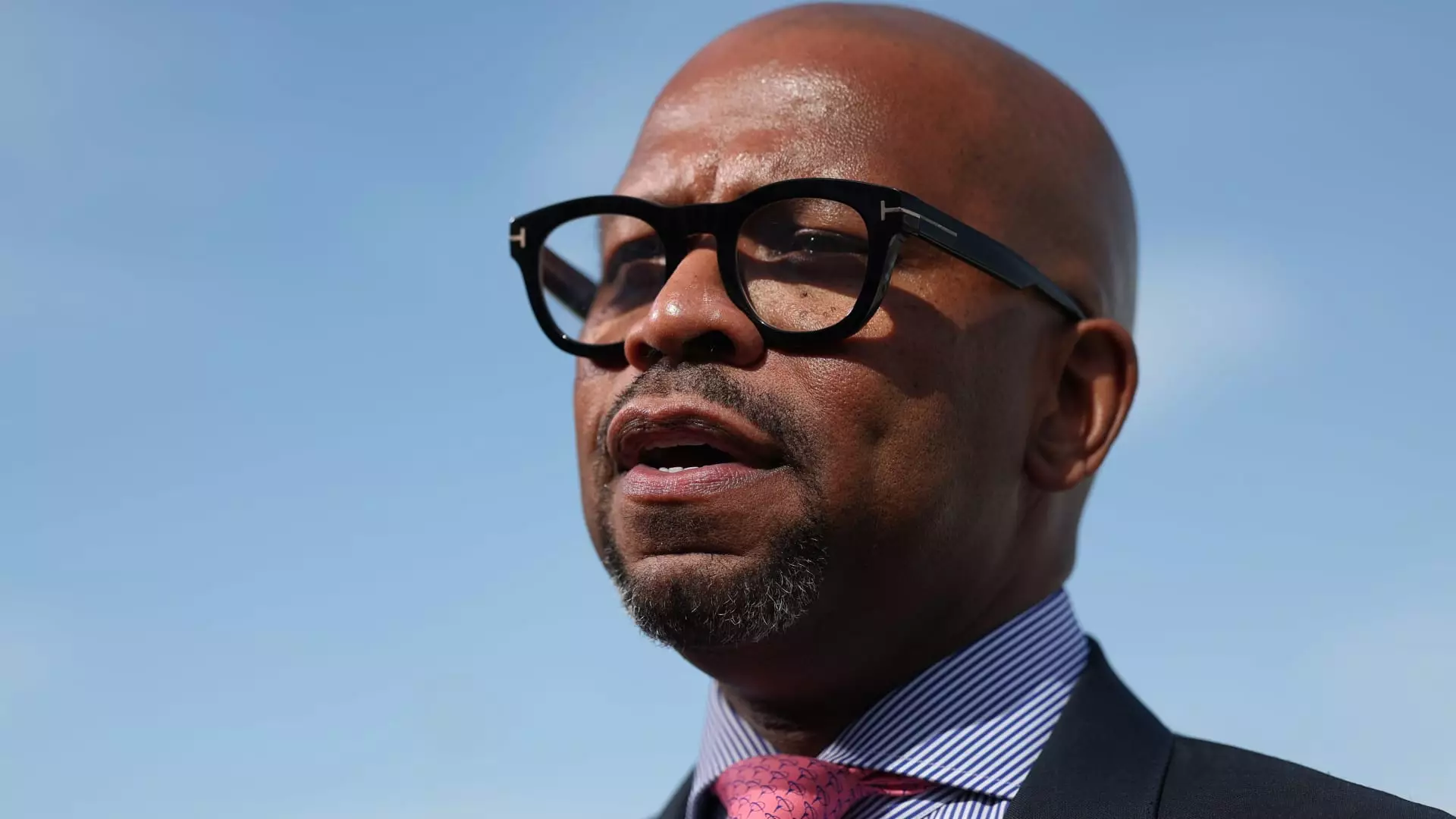Boeing’s Leadership Shakeup: A New Era for Defense Amidst Challenges

Boeing has initiated a significant shift in its leadership, with the departure of Ted Colbert, the head of its defense unit, as announced by the new CEO Kelly Ortberg. This decision, which comes shortly after Ortberg assumed his role in early August, signals a critical pivot for the aerospace giant amid ongoing challenges. In a widely circulated staff memo, Ortberg emphasized that the current focus is on regaining customer trust and fulfilling the high expectations essential for vital global missions. This statement reflects a broader sentiment within Boeing, which has been striving to overcome the setbacks that have plagued its operations.
Boeing’s defense, space, and security segment is not just a minor component of the company’s revenue; it accounted for nearly 40% of the total in the first half of the year. However, the unit has encountered significant hurdles, including production issues and substantial cost overruns. These challenges were particularly evident with the new 747 aircraft designated to serve as Air Force One. Such difficulties raise critical questions about Boeing’s ability to deliver on its commitments, especially when public scrutiny surrounds the safety and operational efficacy of its products.
The inability to successfully manage these challenges has led to a decline in confidence among stakeholders. The perception of reliability is crucial in the defense sector, where high stakes prevail. With Colbert’s exit, Boeing appears to be signaling a commitment to implementing effective changes quickly, which many believe could have lingering effects on the company’s reputation.
In the interim, Steve Parker, the COO of Boeing’s defense unit, has been appointed to oversee operations until a permanent replacement for Colbert is named. This transitional phase is critical; effective leadership is essential in navigating the complexities of defense contracts, especially against the backdrop of federal budget constraints and evolving military needs.
Ortberg’s ability to choose the right successor will be pivotal in establishing a clear vision for the defense division. The challenges of managing high-profile projects like NASA’s Starliner highlight the need for a leader who can foster collaboration and innovation. The recent decision where NASA opted for SpaceX’s Crew-9 to bring astronauts back from the International Space Station further complicates Boeing’s positioning in the competitive space sector.
As Boeing embarks on this new chapter, it must not only stabilize its internal structures but also reshape its external relationships with clients and partners. The focus on restoring trust is paramount; customers must feel confident that Boeing can deliver on its commitments without further complications.
The era of transparency and accountability in aerospace manufacturing is rapidly unfolding. Stakeholders, including government agencies and commercial customers, are more cognizant of operational deficiencies than ever before. As Boeing seeks to align its strategies with the expectations of its clientele, the company’s resolve to make necessary adjustments under Ortberg’s leadership could very well determine its success in reclaiming its position as a leader in the aviation and defense industries.
While the departure of Ted Colbert marks a transitional period for Boeing, it also offers a unique opportunity to redefine its pathways forward, reignite stakeholder trust, and recommit to excellence in all facets of its operations.





